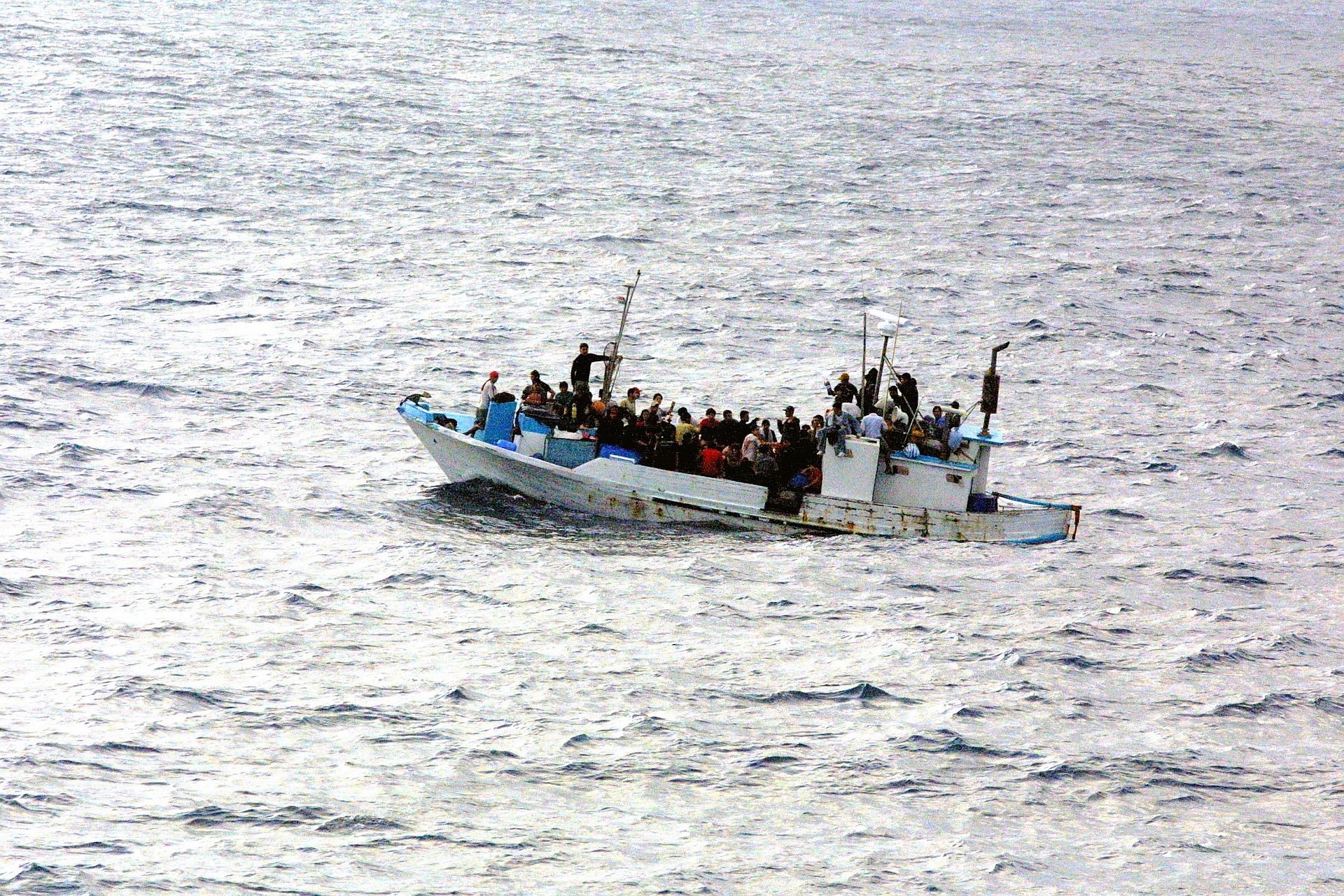
The cyclical nature of migrant moral panic has once again reared its ugly head – this time the script was seemingly straight out of Black Mirror season 6. In their coverage of events, BBC and Sky News provided us with live voyeuristic commentary on the desperate journey of refugees, enlightening the public of their plight by shouting ‘are you okay?’ with an added thumbs up. This failure to provide any context as to why these people are risking their lives in the most dangerous route into the UK was accompanied by Nigel Farage’s video campaign of a fantasy ‘invasion’. The consequences of encouraging common misconceptions surrounding migration and validating xenophobic discourses were shown in the recent YouGov poll, which recorded 49% of respondants having ‘little’ or ‘no sympathy’ towards those crossing the Channel. Migrant crisis? To me, it looks more like an empathy crisis.
Prevailing misconceptions regarding migrants’ rights were articulated most effectively by Prime Minister Boris Johnson’s description, claiming Channel crossings are “very bad and stupid and dangerous and criminal”. In this case, Johnson is wrong on 3 counts. In reality, seeking a syñum is not illegal, and neither is choosing the country in which you wish to stay. The lack of safe and legal routes into the UK forces desperate people to make this journey the PM claims to be “stupid”, especially due to the COVID-19 travel restrictions in place. There has been no travel on humanitarian grounds during the pandemic, and a reduction in the number of lorries crossing the Channel, resulting in the rise of small boat rides. Rather than providing this necessary context, BBC and Sky News presented dehumanising footage of vulnerable migrants and asylum seekers on their perilous journey. By toeing the line of the Government’s stance on immigration, the mainstream media are eroding the public’s ability to form an educated perspective on migration. The fabrication of this crisis has particular significance when used as a scapegoat for the highest Coronavirus death toll in Europe and the United Kingdom’s largest recession on record. Who is the real threat, a dingy load of immigrants or our own representatives?
This toxic narrative of a ‘migrant crisis’ has been inherent in tabloid media for decades now, legitimised by the policies of New Labour and reinforced by Farage’s ability to spread his language of hatred through social media. Both Farage and Natalie Elphicke – the MP for Dover – have recently posted videos denouncing refugees, encouraging the Government to announce further militarization of migrant policy. This attempt to make the Channel crossing “unviable” proved depressingly successful following the death of Abdulfatah Hamdallah, who was fleeing war-torn Sudan, and was found drowned on a beach near Calais. Priti Patel was quick to condemn people smugglers, a narrative adopted to move blame from the hard borders that forced Hamdallah into a dingy, which only further encourage the human trafficking business.
The migrant safari we enjoyed from the comfort of our own sofas last month perfectly represents Britain’s self-avowed existential crisis. According to the mainstream media and our Government, it is the 4000 undocumented migrants arriving in dinghies that pose the largest threat to British civilisation in 2020. It seems as though the United Kingdom’s media culture is struggling to separate facts from popular sentiment. Alternatively, a push for safe and legal routes, stronger resettlement programmes and humanitarian visas starts with more accurate representation of asylum seekers and migrants in the media. Throughout this often callous debate, I believe it is particularly powerful to remember Warsan Shire’s poem ‘Home’; there to remind us that “No one puts their children in a boat / unless the water is safer than the land”.
By Ruby Wait-Weguelin
Picture Source: Wikimedia Commons

